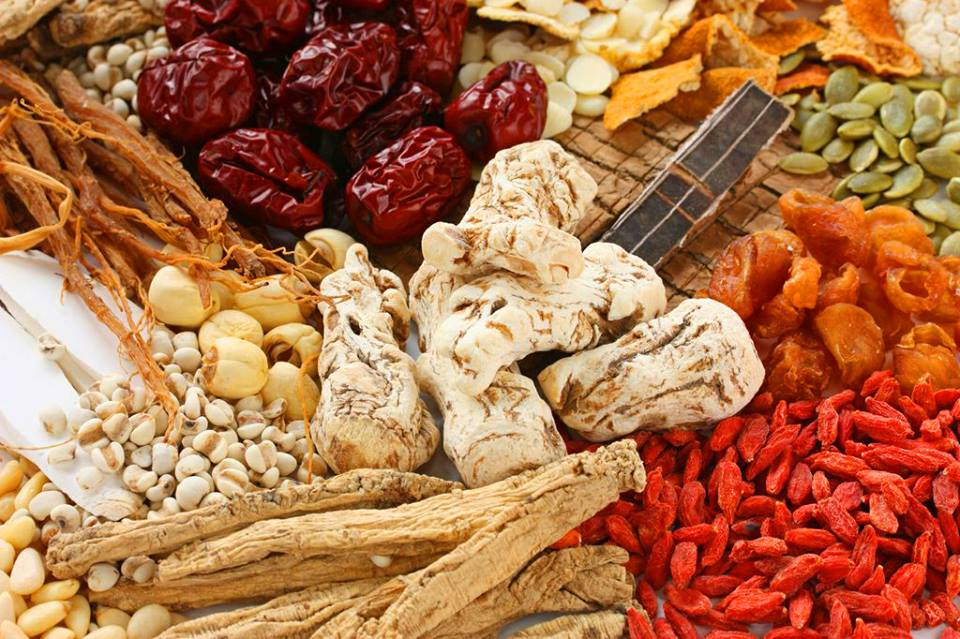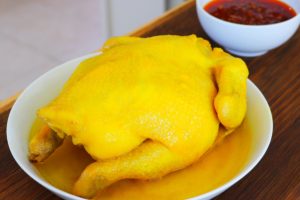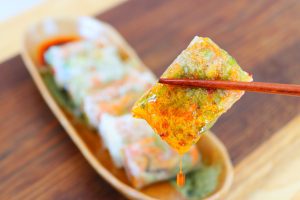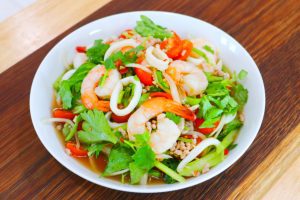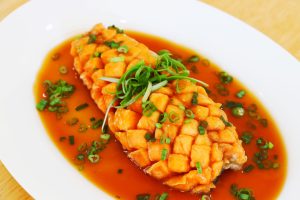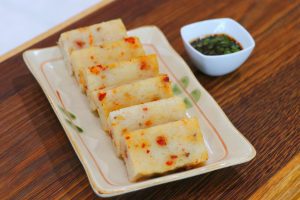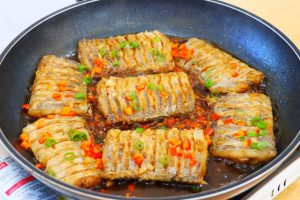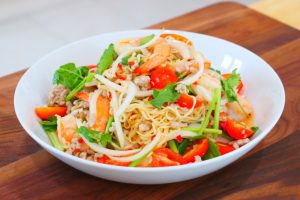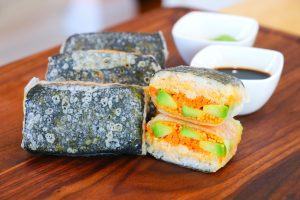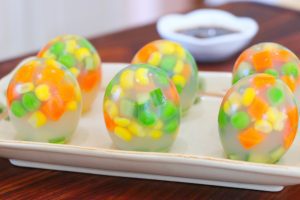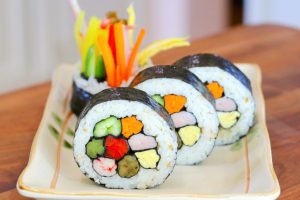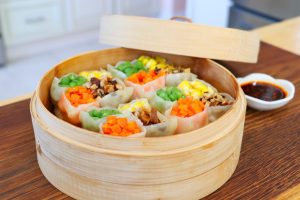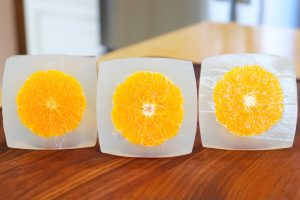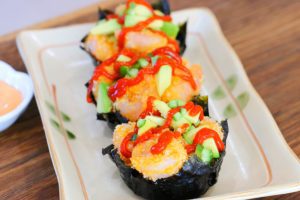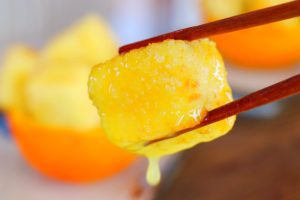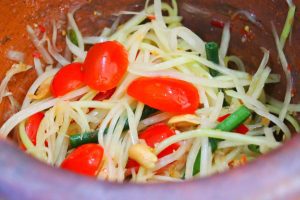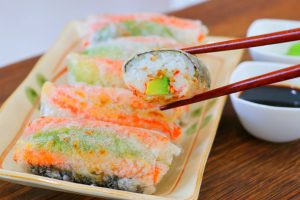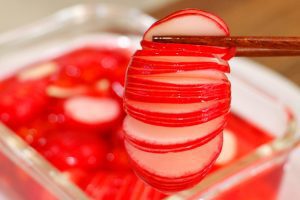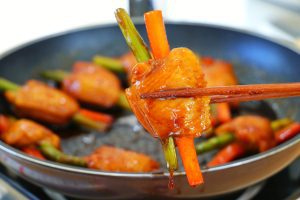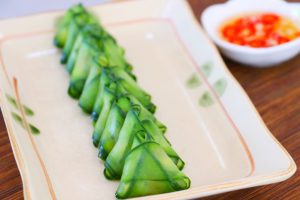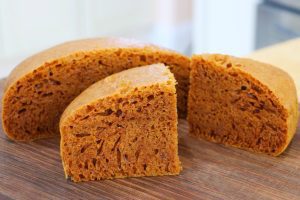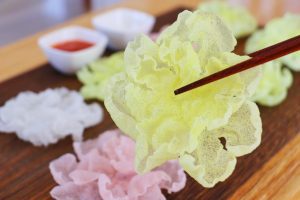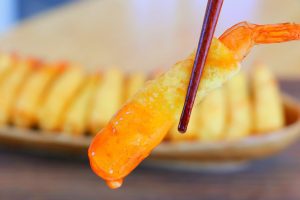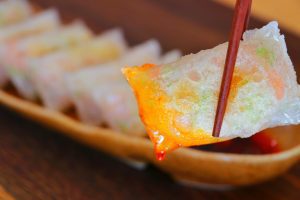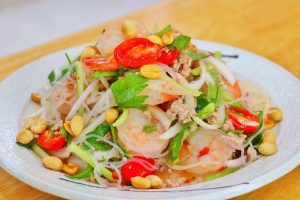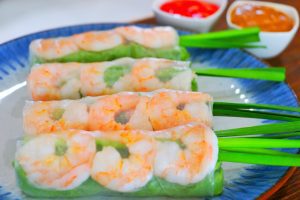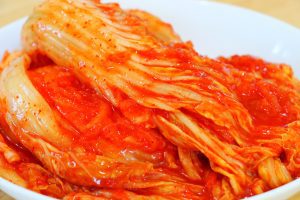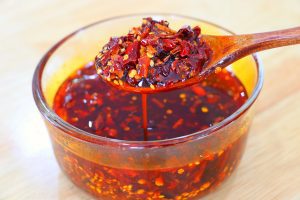
As the weather turns colder, instead of craving for fresh fruits and salads, my cravings for hot soups, stews, and teas grow excessively. But did you know this is normal according to Traditional Chinese Medicine? It’s pretty much the way our body tells us what it needs in order to survive in freezing cold weather.
Traditional Chinese Medicine believes that the universe is a balance of yin and yang energy and that all living beings follow the course of nature. As the seasons change, the proportions of yin and yang in our bodies also change. In winter the body’s yang energy becomes hidden inside the body, and the warm yang energy becomes far removed from the extremities of the body, such as the hands and the feet. Therefore, we should make some changes to our diet throughout the year to maintain a good balance of yin and yang.
According to Dr. Jenny Fan, an acupuncturist and herbalist in Milpitas, California, “Our bodies are instinctively expressing the fundamental principles of winter—rest, reflection, conservation and storage. It is important to nurture and nourish our kidney qi.”
Think about what people used to do back in the ancient time. They followed the cycles of nature. In winter, days are short and nights are long, so people rest more and conserve energy for the upcoming spring. They also ate seasonal foods. During the winter, fruit and leafy vegetables wouldn’t grow, so people ate whatever was available. People in ancient China emphasized eating warming foods. For example:
1. Lamb: nourishes and warms your body, because it promotes blood circulation and removes dampness and coldness. During winter it can also help boost your immune system.
2. Yam: is considered good for treating a yin deficiency, kidney problems, fatigue, and a dry cough. It’s also an excellent source of mucus protein (thought to have a role in reducing blood sugar), B-complex group vitamins, and vitamin C. It contains minerals such as copper, calcium, potassium, iron, manganese, and phosphorus.
3. Ginger: helps expel coldness and dampness inside the body and improves blood circulation. It can help relieve a variety of illness symptoms, including nausea, vomiting, diarrhea and the symptoms of a cold or the flu. According to the American Cancer Society, some patients undergoing chemotherapy have found ginger helpful for reducing nausea. Some proponents have said ginger can keep tumors from developing, but scientific evidence has not supported this claim.
4. Garlic: has been used as both a food and a medicine in China for thousands of years. It can help the body remove toxins, including bad or waste blood. It can kill bad elements in your body, like bacteria. It contains several important nutrients and minerals, including vitamins B6 and C, calcium, manganese, phosphorus, zinc.
5. Goji: traditionally this should be cooked before consumption. It can be added to rice congees, or soups, as well as to herbal teas. It helps to lower blood sugar, is good for blood circulation, and helps to promote better eyesight. Chinese women often eat it to promote youth and beauty. It has 6 types of vitamins, 18 amino acids, and 11 essential and 22 trace dietary minerals.
6. Jujube: also known as Hong Zao can be eaten in a similar fashion to Goji. Some people make jujube vinegar and wine. Jujube is believed to ease stress, and was a traditional antifungal, antibacterial, antiulcer, and anti-inflammatory treatment. It also helps to promote heart health and can aid blood circulation. Chinese women also eat this to promote youth and beauty.
7. Adzuki Bean: also known as Hong Dou, is commonly eaten in sweet foods, either by making it into red bean paste or adding it to dessert soups. It helps with qi and blood circulation. It can help the body detox. It’s high in protein, iron, magnesium, phosphorus, and potassium.
These are all superfoods in Winter according to Traditional Chinese Medicine. However, you don’t need to go overboard and start eating a whole lot more. Remember, everything in your diet should still maintain a healthy balance of yin and yang. The recommendation is only to eat proportionally more.
Please comment below and share any other superfoods we should try this winter. I’d love to check out your suggestions. In the meantime stay warm, and happy eating!

